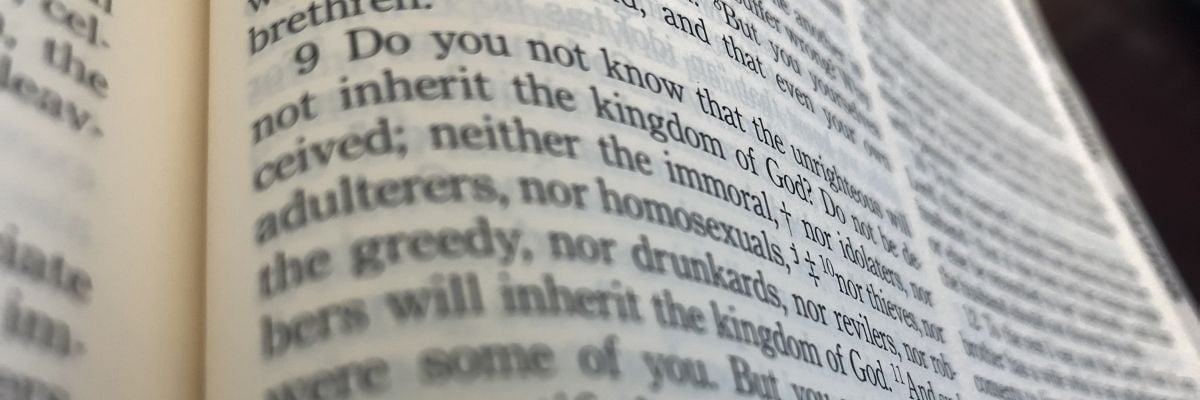
Question:
Answer:
The following New Testament passages deal with homosexual actions:
“For this reason God gave them up to dishonorable passions. Their women exchanged natural relations for unnatural, and the men likewise gave up natural relations with women and were consumed with passion for one another, men committing shameless acts with men and receiving in their own persons the due penalty for their error” (Rom. 1:26–27).
“Do you not know that the unrighteous will not inherit the kingdom of God? Do not be deceived; neither the immoral, nor idolaters, nor adulterers, nor sexual perverts, nor thieves, nor the greedy, nor drunkards, nor revilers, nor robbers will inherit the kingdom of God” (1 Cor. 6:9–10).
“Now we know that the law is good, if any one uses it lawfully, understanding this, that the law is not laid down for the just but for the lawless and disobedient, for the ungodly and sinners, for the unholy and profane, for murderers of fathers and murderers of mothers, for manslayers, immoral persons, sodomites, kidnappers, liars, perjurers, and whatever else is contrary to sound doctrine” (1 Tim. 1:8–10).
“Just as Sodom and Gomorrah and the surrounding cities, which likewise acted immorally and indulged in unnatural lust, serve as an example by undergoing a punishment of eternal fire” (Jude 7).
But God’s displeasure with acting out on homosexuality is depicted as early as Genesis 19 in the Old Testament. Also see Leviticus 18:22 and 20:13.
Yes, interpretation is important. If interpretation were left up to us as individuals, we could make the Bible say whatever we want it to say, and our sinful natures could gravitate toward interpretations that serve our passions. That is why, ultimately, the Church reserves the right to interpret Scripture to herself. “For all of that has been said about the way of interpreting Scripture is subject finally to the judgment of the Church, which carries out the divine commission and ministry of guarding and interpreting the word of God” (Dei Verbum 12).


